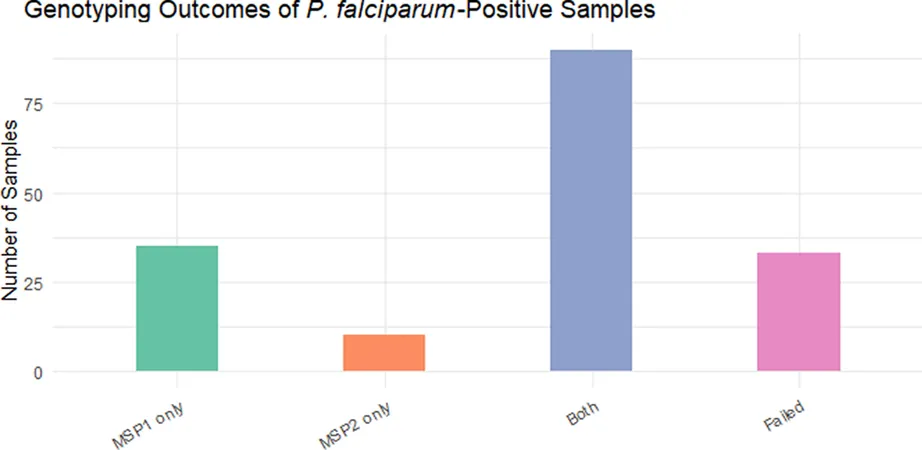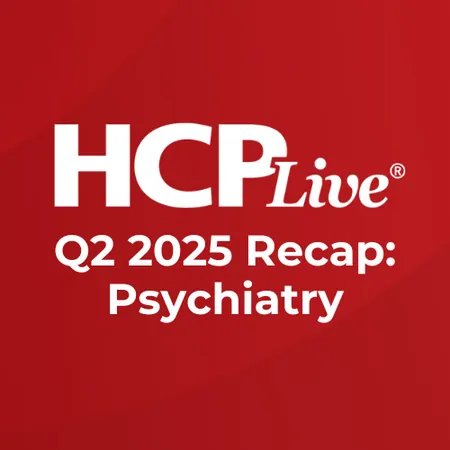
The Truth About Pseudoephedrine: Are the Benefits Worth the Risks?
2025-01-17
Author: Ming
Introduction
In a recent statement, Singapore’s Health Sciences Authority (HSA) reassured the public that the advantages of pseudoephedrine—a common decongestant found in 31 medications—far outweigh the potential risks. This response comes in the wake of international reports highlighting adverse effects linked to the drug.
Safety Assurance from HSA
Despite global concerns, the HSA has reported no severe local incidents associated with pseudoephedrine-containing medications like Clarityn-D, Telfast-D, and Sudafed. Known for its effectiveness in relieving nasal congestion, pseudoephedrine works by constricting blood vessels in the nasal passages and sinuses, thereby reducing swelling and easing breathing.
Potential Risks
However, it's critical to understand that pseudoephedrine can also tighten blood vessels throughout the body, which may elevate blood pressure. HSA urges users experiencing severe side effects—such as significant headaches, nausea, visual disturbances, or seizures—to discontinue use and seek urgent medical care.
Safety Alerts and Serious Risks
In April 2024, the HSA published a safety alert regarding rare but serious risks associated with pseudoephedrine, particularly posterior reversible encephalopathy syndrome (PRES) and reversible cerebral vasoconstriction syndrome (RCVS). Although these conditions are extremely rare, they can be life-threatening, leading to visual issues, seizures, and cognitive impairments if left untreated. PRES and RCVS can mimic the symptoms of a stroke, resulting in spasming blood vessels; globally, there have been a few reported fatalities linked to these syndromes.
Industry Response
Adding to the controversy, British pharmaceutical giant GSK announced plans in 2023 to cease production of its popular product Zyrtec-D, an antihistamine and decongestant that includes pseudoephedrine. Although GSK cited business reasons, some speculate this decision was influenced by the drug's reported side effects.
Healthcare Perspective
Healthcare professionals typically regard pseudoephedrine as safe for the vast majority of the population. However, certain individuals, such as those with heart conditions or glaucoma, should approach with caution. Dr. Melvyn Wong, medical director at Raffles Medical, emphasized the effectiveness of pseudoephedrine for quick relief from congestion due to colds or allergies.
Cautious Usage
Nonetheless, he acknowledged that doctors often hesitate to prescribe it to high-risk patients—particularly those with uncontrolled hypertension, heart disease, or frequent migraines. When prescribing these medicines, healthcare providers must provide comprehensive instructions to minimize misuse and prevent adverse effects.
Alternatives to Pseudoephedrine
For patients who may face higher risks, alternatives are available. Dr. Wong notes that nasal sprays, such as oxymetazoline, can relieve congestion with fewer systemic side effects. Saline nasal sprays and irrigations are also recommended, offering a safe method to moisten the nasal passages and clear out allergens. However, patients should be advised that nasal sprays should only be used for short durations, typically no longer than five days, to avoid rebound congestion.
Combinations of Treatments
Moreover, Dr. Wong suggests that for individuals with multiple symptoms, combinations of antihistamines and analgesics (like paracetamol or ibuprofen) might be more beneficial than pseudoephedrine-based solutions.
Expert Opinions
Dr. John Cheng, chief medical officer of Healthway Medical Group, adds that severe reactions to pseudoephedrine are 'exceedingly rare' and typically arise from overlapping health factors, such as pre-existing conditions or drug interactions. Patients are encouraged to adhere strictly to prescribed dosages and to consult healthcare professionals before initiation.
Regulatory Commitment
In its ongoing commitment to public safety, the HSA asserts it will monitor situations closely and take appropriate regulatory actions should any significant safety issues arise, whether locally or globally. As discussions around pseudoephedrine continue, understanding its benefits and risks remains paramount for consumers seeking relief from nasal congestion.



 Brasil (PT)
Brasil (PT)
 Canada (EN)
Canada (EN)
 Chile (ES)
Chile (ES)
 Česko (CS)
Česko (CS)
 대한민국 (KO)
대한민국 (KO)
 España (ES)
España (ES)
 France (FR)
France (FR)
 Hong Kong (EN)
Hong Kong (EN)
 Italia (IT)
Italia (IT)
 日本 (JA)
日本 (JA)
 Magyarország (HU)
Magyarország (HU)
 Norge (NO)
Norge (NO)
 Polska (PL)
Polska (PL)
 Schweiz (DE)
Schweiz (DE)
 Singapore (EN)
Singapore (EN)
 Sverige (SV)
Sverige (SV)
 Suomi (FI)
Suomi (FI)
 Türkiye (TR)
Türkiye (TR)
 الإمارات العربية المتحدة (AR)
الإمارات العربية المتحدة (AR)